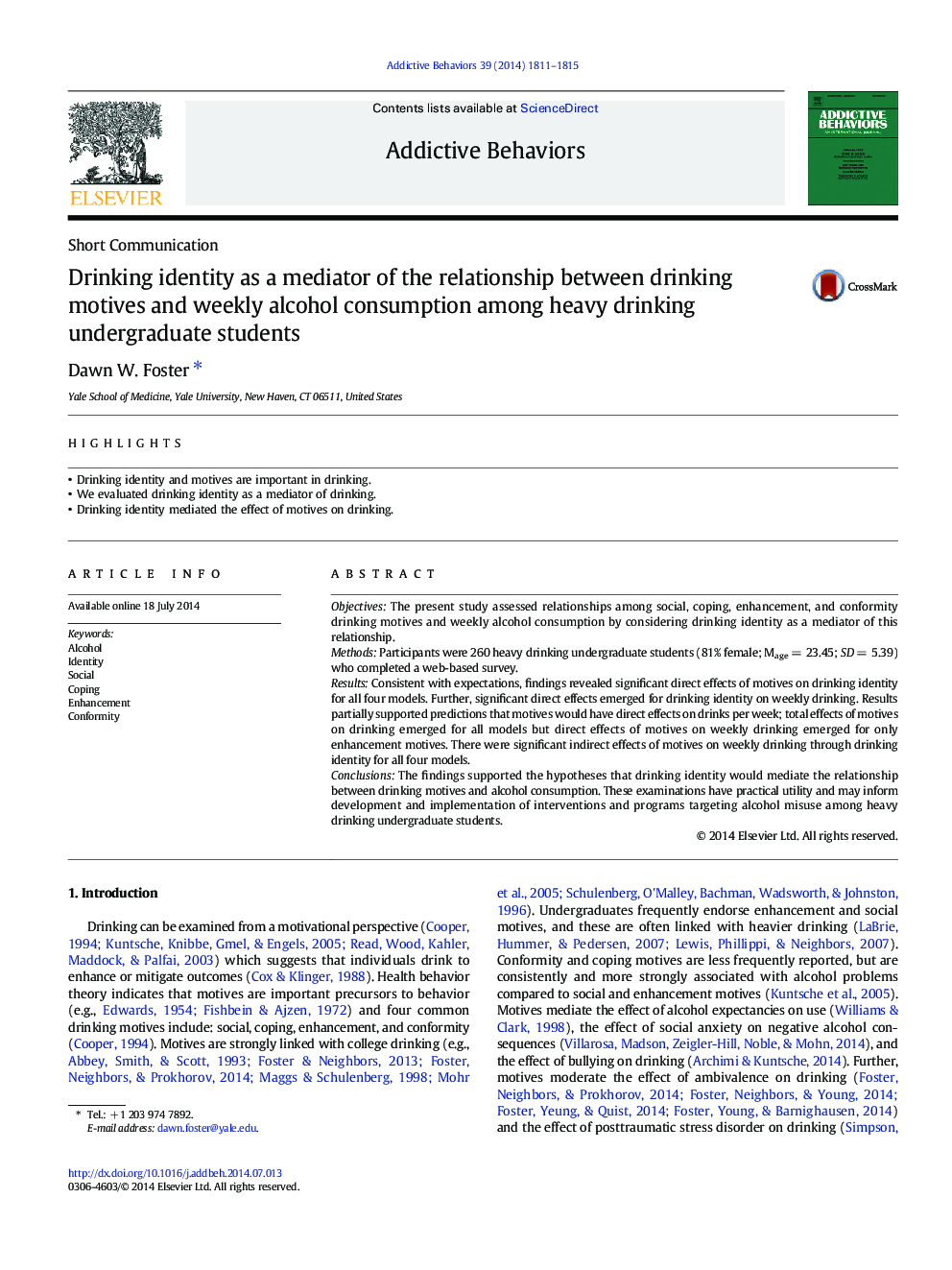| کد مقاله | کد نشریه | سال انتشار | مقاله انگلیسی | نسخه تمام متن |
|---|---|---|---|---|
| 898799 | 915342 | 2014 | 5 صفحه PDF | دانلود رایگان |
• Drinking identity and motives are important in drinking.
• We evaluated drinking identity as a mediator of drinking.
• Drinking identity mediated the effect of motives on drinking.
ObjectivesThe present study assessed relationships among social, coping, enhancement, and conformity drinking motives and weekly alcohol consumption by considering drinking identity as a mediator of this relationship.MethodsParticipants were 260 heavy drinking undergraduate students (81% female; Mage = 23.45; SD = 5.39) who completed a web-based survey.ResultsConsistent with expectations, findings revealed significant direct effects of motives on drinking identity for all four models. Further, significant direct effects emerged for drinking identity on weekly drinking. Results partially supported predictions that motives would have direct effects on drinks per week; total effects of motives on drinking emerged for all models but direct effects of motives on weekly drinking emerged for only enhancement motives. There were significant indirect effects of motives on weekly drinking through drinking identity for all four models.ConclusionsThe findings supported the hypotheses that drinking identity would mediate the relationship between drinking motives and alcohol consumption. These examinations have practical utility and may inform development and implementation of interventions and programs targeting alcohol misuse among heavy drinking undergraduate students.
Journal: Addictive Behaviors - Volume 39, Issue 12, December 2014, Pages 1811–1815
